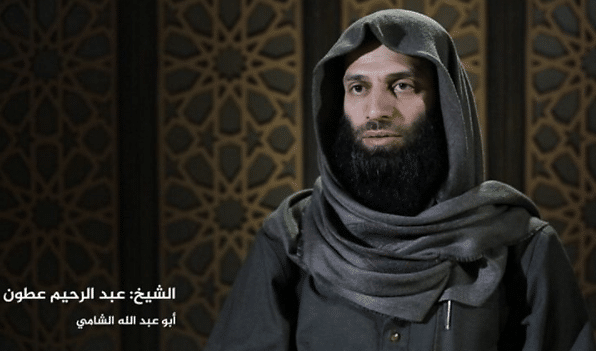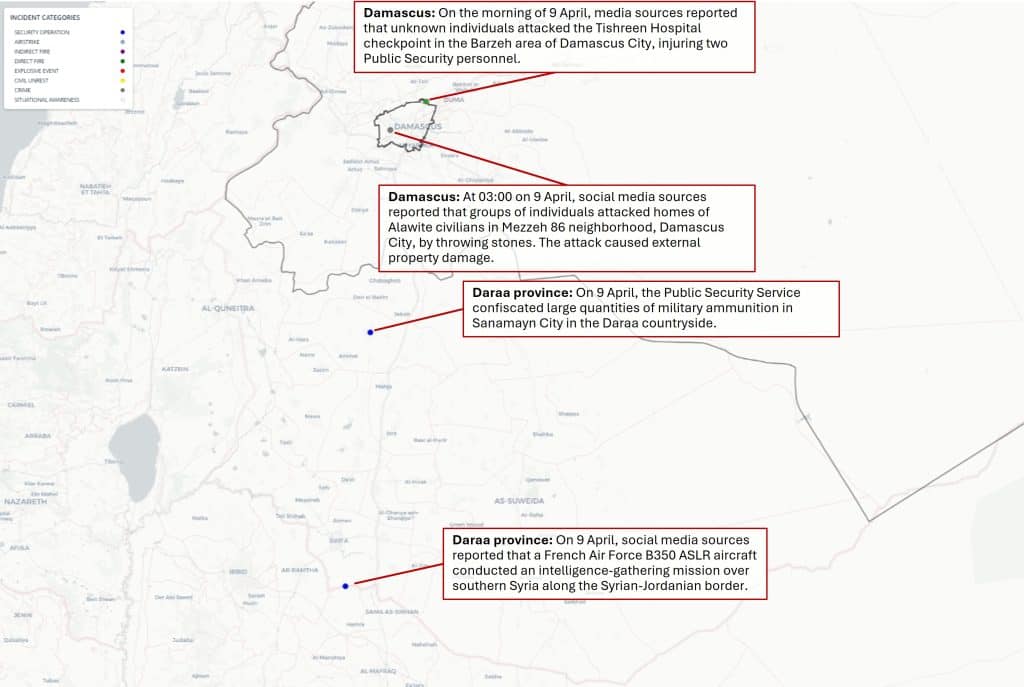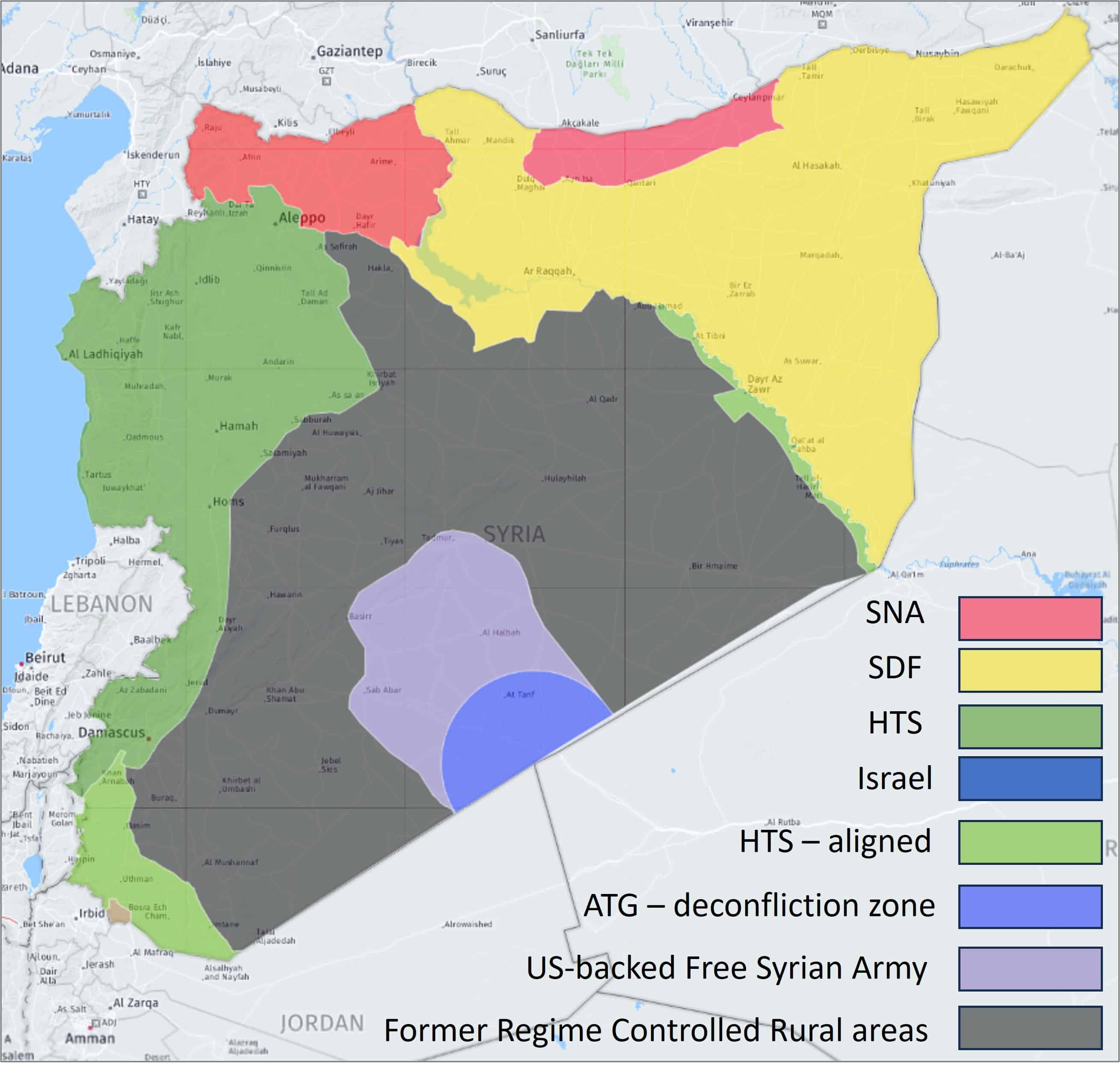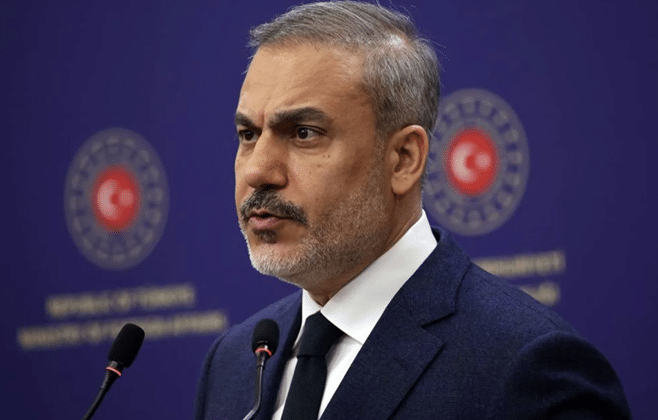NATIONAL OVERVIEW
Nationwide incidents
SIGNIFICANT EVENTS
- Turkish Foreign Minister confirms deconfliction discussion with Israel
- Ansar al-Sunnah claims responsibility for multiple attacks
- Checkpoint targeted in Barzeh area
- Alawite residents attacked in Mezzeh neighborhood
- Ammunition found during security operation in Daraa
- Tribal fighters target SDF-linked elements in Raqqa
- SDF-site targeted in Karamah, eastern Raqqa
- Former Iran-backed commander targeted in Aleppo city
- Suspected IS activity continues in Deir Ez Zour
- Several landmine detonations reported
- test planned by SNA-linked supporters in Deir Ez Zour
- Body finds reported in Homs city
- Security operation foils planned attack plot in Homs
- Kidnapping reported in Latakia province
STRATEGIC AND POLITICAL DEVELOPMENTS
Turkish Foreign Minister confirms deconfliction discussion with Israel
On 9 April, Turkey’s Foreign Minister Hakan Fidan confirmed that Turkey and Israel are engaged in discussions regarding deconfliction mechanisms in Syria. Speaking with international media, Fidan stressed the need for a deconfliction mechanism “similar to the ones we have with the US and Russia.” “There are technical contacts to prevent combat elements from misunderstanding each other,” Fidan continued, adding that technical teams are communicating “when needed.”
Fidan also stressed that Turkey has “no intention” of fighting any country in Syria” but also emphasized that the mechanisms being discussed are only intended to avoid confrontation and accidental conflicts, and not to normalize relations with Tel Aviv. Separate sources, citing Israeli officials, said the issue of avoiding confrontations with Turkey was also discussed by Israeli Prime Minister Benjamin Netanyahu in a cabinet meeting where he stressed the importance of avoiding conflict with Ankara. At the same time, Netanyahu also reiterated Israel’s right to defend itself if needed.
As previously discussed this week, the reports of deconfliction follow indications that Turkey will deploy military assets at military bases in north and central Syria – including sites, such as the T4 base near Palmyra, that have been consistently targeted by Israeli airstrikes. The same reports suggest Prime Minister Netanyahu ordered the T4 base to be targeted prior to any deployment of Turkish assets there and said the base was off-limits once Turkish forces were present. Related strategic and diplomatic tensions between the two sides have also increased in light of mutual accusations that they are both fueling instability, with the Turkish Foreign Ministry describing Israel as the “most significant threat” to regional stability last week. While discussions over deconfliction mechanisms are a positive indicator, these are not likely to preclude further tensions between the two sides as Israel’s intent to neutralize conventional military capabilities directly conflicts with Turkey’s expanding role in the country.
President al-Sharaa to visit Turkey on 12 April
On 9 April, media sources, citing informed sources, reported that military cooperation would be a central focus of Ahmed al-Sharaa’s upcoming visit to Turkey on 12 April. Discussions are expected to include the establishment of Turkish air bases in Syria, though neither their location nor size has been disclosed. The sources stated that the military agreement had been under development for some time and was expected to make significant progress, with implementation potentially beginning immediately after the talks. A key issue under negotiation is the status of the Syrian Democratic Forces, with Ankara insisting on their disarmament and integration into the Syrian army as a precondition for future partnership.
Ansar al-Sunnah claims responsibility for multiple attacks
In separate statements released on Telegram on 9 April, Ansar al-Sunna – a militia group formed in February by remnant members of the HTS – claimed responsibility for several attacks against non-Sunni individuals, including former commanders and Alawite residents in the provinces of Homs and Latakia. In total, the group claimed to have killed more than 20 individuals in total yet these figures were not independently corroborated by other sources. Notably, several of the attacks claimed by the group were separately reported as being carried out by members of the security forces, or individuals at least impersonating the Public Security Services. Earlier this month, the group claimed that it would continue to target Alawite residents in the country as punishment for the crimes committed by the Assad regime and that it would not stop until Alawites and Shias were eliminated or moved from the region.

Abu Aisha al-Shami, leader of Ansar al-Sunnah
Ansar al-Sunna was formed in February 2025 by Abu Aisha al-Shami – a former HTS member who broke with the organization over its perceived leniency towards former Assad-linked elements. The group has since claimed responsibility, albeit on questionable grounds and often limited corroboration, for attacks against Alawites in Latakia, Tartous and the Homs region.
New official appointed for Afrin region
On 9 April, social media sources reported that Masoud Mohammed Saleh Batal was appointed as the official in charge of the Afrin region. He is originally from Qamishli City and graduated from the Military College. Batal previously served as a coordinator of the Syrian revolution in Hasaka province and holds a degree in Turkish Literature from the Faculty of Education. He has held positions as head of the relations office in the Salvation Government, general administrator in the Public Security Service from 2015 to 2017, and assistant administrator of the Sarmada region in 2022 until the area was recaptured. He is a member of the committee negotiating with the Syrian Democratic Forces, appointed directly by President Ahmed al-Sharaa.
French delegation in Damasus discussed cooperation
On 9 April, the Ministry of Communications reported that Minister Iyad al-Khatib received a French delegation to discuss cooperation in the development of the communications and information technology sector. The two sides reviewed the ministry’s rehabilitation plans and partnership strategies to improve public services. They also discussed potential cooperation in consulting and training related to telecommunications and postal services. The French delegation expressed readiness to support Syria during the reconstruction phase, while Minister al-Khatib welcomed increased bilateral cooperation.
DAMASCUS & THE SOUTHERN REGION (including Suwaida, Daraa & Quneitra)

Security overview – Damascus 9-10 April
Checkpoint targeted in Barzeh area
A marginal uptick in activity was noted in the capital over the review period following a recent lull in hostilities, with two separate but noteworthy attacks recorded. On the morning of 9 April, media sources reported that unknown individuals attacked the Tishreen Hospital checkpoint in the Barzeh area of Damascus City. Two Public Security personnel were injured as a result yet the identity and motive of the perpetrators were not provided. The incident is consistent with hit-and-run attacks and low-level activity attributed to former regime remnants, and a security response can be anticipated in the vicinity over the coming days. The incident also underscores the risk of attacks against checkpoints in Damascus, which remain attractive targets for a variety of threat actors and which form a consideration when transiting.
Alawite residents attacked in Mezzeh neighborhood
One incident attributed to sectarian tensions was also reported. Overnight on 9 April, social media sources reported that groups of individuals attacked homes of Alawite civilians in Mezzeh 86 neighborhood, Damascus City, by throwing stones. The attack caused external property damage but no casualties or more serious damages were discussed. The incident is consistent with assessed sectarian tensions between Sunni and Alawite residents in the area which increased in the aftermath of the escalation in the coastal areas in March.
Ammunition found during security operation in Daraa
Activity in the southern provinces was limited overall, with no significant hostilities noted despite a recent increase in Israeli operations. On 9 April, the Public Security Service confiscated large quantities of military ammunition in Sanamayn City in the Daraa countryside. The discovery was made during a security operation in the area but further details were limited.
NORTH & EAST SYRIA (Including Hasaka, Deir Ez Zour, Aleppo & Raqqa provinces)
Tribal fighters target SDF-linked elements in Raqqa
Frontline hostilities in Aleppo and Raqqa provinces were yet again subdued, with no further clashes or operations noted for a second consecutive day. Pro-Turkish sources stated that the SDF stole and transferred equipment across the river near the Tishreen Dam while local residents reported the presence and activity of Turkish reconnaissance aircraft however none of these developments prompted any further activity. Hostilities were instead linked to diverse threat conditions.
On the morning of 10 April, social media sources reported that tribal fighters targeted two members of the PYD-linked Revolutionary Youth Movement near the Raqqa wall in Raqqa City. Both were injured as a result but the circumstances of the attack were not provided. The incident is consistent with recent tensions between the SDF-linked elements and local tribal elements following security operations conducted targeting criminal activities.
SDF-site targeted in Karamah, eastern Raqqa
Separately, late on the evening of 9 April, social media sources reported that armed individuals attacked a Syrian Democratic Forces site in Karamah town, eastern Raqqa province. No casualties were reported and the identity of the perpetrators was likewise not stated. The incident is plausibly linked to the above-noted tribal tensions and related to recent security operations however the involvement of IS should not be discounted either based on recent activity levels and given the style of the attack but this remains speculative at this point.
Former Iran-backed commander targeted in Aleppo city
Acts of retribution against former regime-linked elements continue to be reported across the central region, including in Aleppo. On 9 April, unidentified gunmen – suspected to be linked to the current government – assassinated a former commander of an Iranian-backed armed group in Akramiyah neighborhood, Aleppo City. Reports stated that the victim had direct ties to Russian forces yet his affiliation was not specified.
SDF continues to withdraw from Aleppo city
The process to implement the agreement signed between the SDF and the interim government regarding security responsibilities around Aleppo continues. On 9 April, a second group of SDF fighters – comprising an estimated 500 members – departed from the Sheikh Maqsoud and Ashrafieh neighborhoods in Aleppo as part of the agreement signed in March. Public Security Service and Ministry of Defense personnel escorted the fighters to SDF-controlled areas. Nouri Sheikho, co-chair of the Kurdish Neighborhood Council in Aleppo, also stated that a prisoner exchange was being arranged, with daily coordination continuing among all parties.
To recall, under the agreement, the SDF will withdraw from the Kurdish-majority neighbourhoods in the city however Asayish elements will remain in the city under the control of the Democratic Autonomous Administration of North and East Syria (DAANES). At the same time, the forces will be restructured as members of the Public Security Forces that fall under the Ministry of Defence.
Suspected IS activity continues in Deir Ez Zour
IS activity levels in eastern Deir Ez Zour remain elevated, with additional attacks noted over the review period. On the evening of 8 April, social media sources reported clashes between residents and IS elements in Tayeb al-Fal, northern Deir Ez Zour province. The confrontation reportedly began after IS demanded that a farmer residing in the area pay zakat – a form of charity mandated by certain interpretations of Islam. No casualties were reported and the assailants withdrew, but the incident follows several similar attempts by insurgent remnants to pressure residents to comply with their legislation.
In a possibly related incident on the morning of 10 April, social media sources reported that armed men attacked a Syrian Democratic Forces vehicle in the Dhiban town marketplace in Deir Ez Zour province. The attack resulted in the deaths of two SDF members and caused additional injuries, however further details remain limited as of writing. IS involvement has not been established or confirmed at this point, yet the style of the attack and recent activity patterns near the town suggest possible IS involvement. A security response can be expected over the near term.
Several landmine detonations reported
The threat from explosive remnants forms a continuous consideration across the country and over the review period additional explosions affecting civilians were noted in Deir Ez Zour and Hasaka provinces. On 9 April, a young man was killed when a landmine, a remnant of war, exploded near the paper factory in Husseiniya village in northern Deir Ez Zour province. Separately an Explosive Ordnance Disposal team member was killed while attempting to dismantle a landmine in the town of Marai’iyah in Deir Ez Zour province. A child was also killed and another was injured when a landmine left over from the war exploded in Karamah village, southern Hasaka province. These incidents continue to be reported on a daily basis and underscore the importance of exercising high levels of caution and maintaining adequate security arrangements when transiting both rural and urban areas that remain heavily contaminated.
Protest planned by SNA-linked supporters in Deir Ez Zour
On 9 April, SNA-linked social media sources called for demonstrations against the Syrian Democratic Forces’ allegedly repressive practices and arbitrary arrests. The protests were scheduled for 15:00 on 11 April at the Madlaja roundabout in Deir Ez Zour City, with demonstrators expected to call on the Syrian government to intervene and protect civilians. Transit disruptions remain likely in the vicinity and clients are advised to avoid the area.
CENTRAL REGION (Including Idlib, Hama, Latakia, Tartous, Hama & Homs)
Body finds reported in Homs city
Separate body finds were reported in Homs city – linked to abductions and suspected arbitrary arrests. On the evening of 8 April, local sources reported that residents discovered the bodies of four Alawite men in the Karm al-Zeitoun neighborhood of Homs City. The victims, including a homeowner and three workers assisting him with moving furniture, had been arrested earlier that day by unknown gunmen in a van wearing Public Security Service military uniforms. It is unclear if the gunmen were actual members of the security services or extreme elements impersonating them, but the arrests and subsequent discoveries are consistent with a standing pattern in the province. Separately, on 9 April, the body of a young man was discovered at Waer Hospital in Homs after he and two of his friends were kidnapped. All three victims worked on a poultry farm in the Homs countryside, and the bodies of the other two had been found earlier.
Security operation foils planned attack plot in Homs
Other activities in the Homs province included security operations and included the alleged disruption of an attack plot. On 9 April, the Public Security Service in Homs City arrested a member of a cell accused of planning attacks on civilian gatherings and security personnel in the Zahra neighborhood. The detainee was allegedly receiving funds to purchase explosives intended for destabilizing the city.
The affiliations of the suspect remain unknown at this point but the involvement of either Sunni or former regime-linked elements are both possible. The attack plot follows the above-noted uptick in IS activity and despite a relative absence of attacks involving explosive devices, such intent should not be discounted. The operation also follows the recent discovery (discussed in the daily report earlier this week) of explosives during an operation against former regime-linked elements in Damascus. The planned targeting of security force personnel is certainly consistent with assessed intent by pro-Assadist elements to conduct attacks in the central region. In a separate development on 9 April, security forces conducted an operation in the Muhajireen neighborhood of Homs City, where they discovered a weapons warehouse and arrested over 20 individuals linked to the former regime. A shooting occurred during the operation as some suspects resisted arrest but no casualties were discussed.
Mine clearance operations launched in northern Hama
On 9 April, the Syrian Ministry of Defense’s Explosive Ordnance Disposal teams began a mine clearance operation in several villages in the northern Hama countryside, including Tal al-Jabin, Tal Malah, Hamamiyat, and Jalmah. The teams used MEMATT minesweepers, which are manufactured by the Turkish Ministry of Defense’s Asfat company.
Kidnapping reported in Latakia
Activity in the Latakia province was linked to diverse threat conditions, but relatively high levels of daily violence continue to be reported in the province. On the evening of 8 April, unidentified individuals kidnapped a young man from his home in Ghaniri village in the Jableh countryside of Latakia province. Hours later, his body was returned. The motive remains unclear but kidnappings have been frequently reported in the area, especially since the escalation in hostilities between Alawite and Sunni residents in March.
Security operations targeting pro-Assad elements also continued. On 9 April, the Public Security Service seized 120mm mortar ammunition during a security operation in the forests of Beit Yashout in the Latakia countryside. The ammunition had been left behind by remnants of the former regime after the 6 March attack. At dawn on 9 April, the Public Security Service also launched a security operation around the Azhari roundabout in Latakia City. The operation aimed to track and arrest an individual who filmed a video showing Public Security members assaulting a young man on 8 April. The operation took place amid a heavy security presence but no results were discussed initially.



